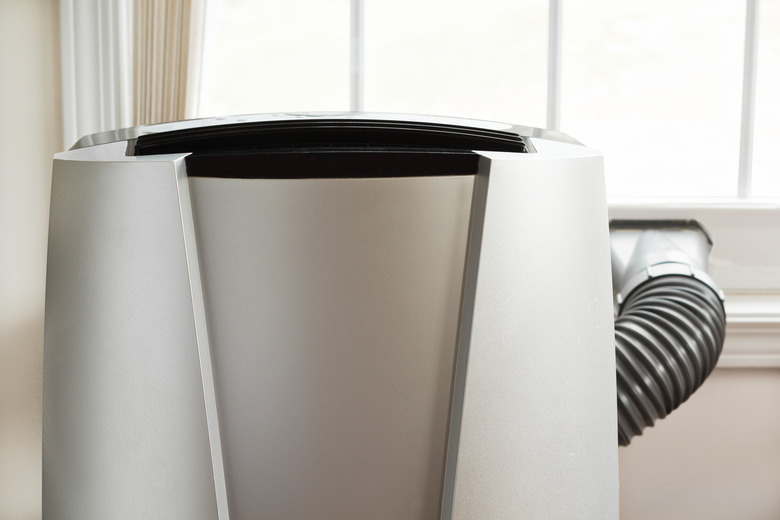How Long Should It Take To Cool Down A House With AC?
We may receive a commission on purchases made from links.
Many people escape the summer heat by cooling their homes with air conditioners. While some invest in central air conditioning systems that cool their entire home, others purchase air conditioner units that can easily be installed in windows of individual rooms. The time it takes to cool a home depends on a number of factors, such as whether one uses central or individual air conditioners, how powerful the systems are and the age of the units.
Tip
Cooling time can vary based on factors such as the type and age of the unit, amount of insulation and the outdoor temperature. A central air unit typically cools your home noticeably in about three hours, while window air conditioning can cool a single room in about an hour.
Central Air Conditioning
Central Air Conditioning
Most central air conditioning systems should cool a moderate, four-bedroom house by about 10 degrees Fahrenheit in three hours. This is highly contingent on a number of factors, such as the age of the system and the temperature outside. Older units that haven't been well-maintained often take longer to cool, for example. Regardless, the house should get noticeably colder within a few hours. If not, there could be something wrong with your air conditioner.
Window Air Conditioner
Window Air Conditioner
An individual window air conditioning unit can cool a room in less time than a central air conditioning unit typically can, if the door and all of the windows in the room are closed. However, the rest of the home will still be warm since window units only cool one room. A relatively small, 10-by-10-foot bedroom should become noticeably colder in 20 minutes, reaching a more comfortable, colder temperature in about an hour.
Evaporative Cooling System
Evaporative Cooling System
Evaporative cooling systems are different in that they cool air through the evaporation of water, rather than through vapor-compression or water-absorption cycles, like most typical air conditioning units. These systems are good to use in hot, dry climates. When compared to traditional air conditioning units, evaporative cooling systems tend to take longer to cool a desired area as well, as the air is cooled in spaced-out cycles. About 15 cooling cycles occur per hour, so the desired temperature may not be reached for a few hours or more depending on the size of the home.
Air Conditioner Power
Air Conditioner Power
The time it takes an air conditioner to cool a home also varies according to the system's power, measured by its Seasonal Energy-Efficiency Rating. One of the greatest influences on a system's SEER is its age. The typical system produced in the 1990s has a SEER of 6, while systems produced in the early 2000s typically hold a rating of 10. Any system produced after Jan. 23, 2006 has a SEER of 13 or higher.
Other Air Conditioning Factors
Other Air Conditioning Factors
A number of other factors affect how long an air conditioner will take to cool a home. If you haven't changed the filters in your HVAC system lately, they can block airflow due to the built-up debris, which makes the unit work harder and take longer to cool your house. A lack of insulation in your home can also make the AC work harder and take more time to cool since there's not enough insulation to slow the heat transfer from outside. Even the weather can impact cooling time with the hottest days of the year slowing down the cooling process.
Tips for Cooling Your Home
Tips for Cooling Your Home
You can increase the efficiency of your air conditioning system by keeping all air conditioning vents open, windows of your home closed and the doors to each room open. Closing vents or doors to certain rooms traps heat and make the air conditioning system work harder. Also, have your central air conditioning system serviced at least once every couple of years and be sure to thoroughly clean all systems once a month while they're in use. In addition, having a well-insulated home with proper window sealing will improve the air conditioner's performance.
